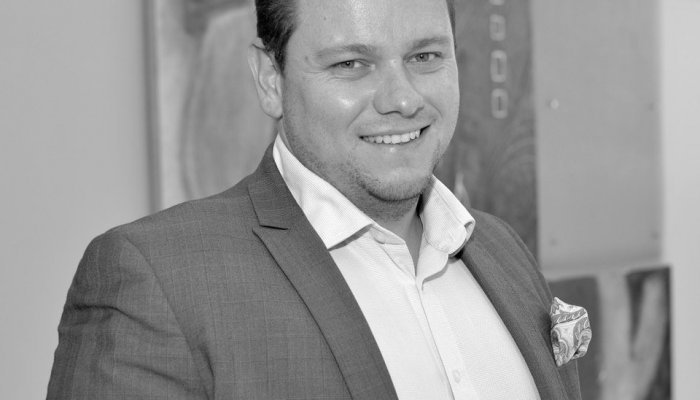Why use a consultant
A consulting firm can offer a business an external, objective view on issues in the business. Nico Mullins, managing partner at Africa People Advisory Group, says, “It is a partnership that exists between two independent parties, that helps the client-organisation to move forward in the direction that they want to go.”
Sujeet Morar, a partner at Kearney, says, “Clients hire consultants to deliver a range of projects, from large transformational programmes, discrete pieces of work or expertise or they are looking for an independent view on a specific topic.”
Consultants are there to support business leaders to make big decisions. The relationship sees parties work together for a beneficial outcome for the business. The choice of consulting firms will be directly linked to the expertise and capabilities they can offer their client.
When to bring in a consultant
Typically, there will be a trigger to bring in consultants. Business leaders might believe they have a problem that cannot be solved with their internal expertise. Chad Schaefer, the managing director of Schaefer Management Consulting, says, “Companies may be looking to improve their overall performance through adopting more efficient ways of running their business or operations. Or they may be looking to reconfigure or transform their business.”
Mullins explains that consultants are then brought in to complement or enhance the skills already in the business. “The intersect is like you are completing a rectangle, which is made up of two triangles. The consultant brings the expertise and the subject matter, the organisation brings the internal knowledge of the workout and why it is practical.” He adds that it is about finding the right consultant to fit the business' need.
Typically consultants are brought for an agreed term. Morar, however, says he has seen too many firms use consulting firms to fill vacancies instead of employing a full-time expert. As consulting services are expensive, this is not a good use of company resources.
Selecting your consultant
Before selecting a consulting firm, businesses have to be clear on what their needs are and why they want to bring in consultants. Some consulting firms offer generalist business and management solutions, others are more specialised, such as mining, engineering, or environmental, for example. Consultants can also work by function or department, for example, finance, logistics or human resources.
Once a business is clear on why it is bringing in consultants, it can then look to choosing a firm. Mullins says that this choice needs to be based on three criteria: credibility, capability and most importantly, compatibility. He says, “Compatibility means, does this work from a relationship, finance, time-zone, and/or expertise point of view, but the relationship is essential.”
The next step is to decide whether you want to use a large multinational firm or a smaller niche consultant.
Big vs small
Morar says, “If you want to execute over multiple geographies, you have to consider a larger consulting company that has a footprint, understands the nuances of each market, and will be able to contribute meaningfully.”
Mullins adds, “If it's depth of expertise, or at least a wider group of expertise that is important to solve the problem, then a smaller firm unfortunately isn't going to be able to deliver. The value of the larger firms does come from the collective insights, the fact that they may have done this elsewhere globally, they've learned through the process and gotten better.”
While big firms may have global capability and have the ability to offer a broader range of services at a greater scale, Mullins says, “I find that many bigger consulting organisations use a cookie-cutter approach, whereas smaller organisations would be able to be more flexible and tailor the solution to the needs of the clients specifically.” He adds that smaller companies are often nimbler and more flexible in their approach. And, with typically lower overheads, smaller consulting firms can often be more affordable.
Ultimately, the decision on whether to choose a larger or smaller consultancy will come down to the scale of the services required. “It’s about understanding the kind of roles and services a firm can provide,” says Morar. The consultant a business does choose, however, must have the resources and capabilities to deliver on the required solution, but the size of the firm should not be the ultimate determinant, believes Mullins.
Selecting and vetting your consulting firm
Morar urges businesses to take the selection of consultants seriously. He says it should be a rigorous process, where the services provided are evaluated against the fees being charged. Then the business has to do a thorough reference and background check on the consultants they want to use. Consulting firms should be able to provide written or contactable references so that they can ensure that the firm or person they are hiring is capable of the job. “At our level, and the type of work we do at Kearney, we are subject to these requirements, it is just part of the process.”
Mullins agrees and says that business must be careful not to fall foul of good marketing. “Often marketing is the best skill a business has, and there is no substance to what they have marketed,” he says. He stresses that while you need to make sure that the person or company you are dealing with can deliver on what they are promising, you also want to find out how they conducted themselves, especially when under pressure. Are they on time, do they present themselves professionally, are there any red flags? He says the best references are word-of-mouth referrals.
And word-of-mouth may be the best way to find a top-notch smaller consulting firm. Morar says it’s easier to find out about big consulting firms, they are known for their expertise in an area, actively publish thought leadership articles and insights which can help a company to look in their direction. There are also usually many articles about the business and their partners. He says, “The challenge comes with smaller, more niche firms that don’t necessarily publish as much or are in the press as much. Verification is important when it comes to understanding who it is that you are bringing on board.”
Preparing for consultants
Businesses, however, cannot expect consultants to come in and simply work their magic. They have to prepare themselves ahead of a consultant’s involvement.
Schaefer shares these tips with businesses when they are about to bring in a consultant:
- Set out clear expectations around engagement objectives, key results, and ways of working
- Communicate these expectations to both the consultant and key engagement stakeholders
- Establish a steering committee and appoint a client-side sponsor who is senior enough and available to make decisions impacting the engagement
- Identify and schedule client-side resources that will be necessary to engage or work with the consultant
- Anticipate and collect relevant data to help inform the context – the more accurate, complete, and timely the data is, the fewer assumptions need to be made
- Critically assess organisational readiness to work with a consultant, while operating the business as usual, and the ability – both time commitment and cash investment – of the organisation to implement recommended solutions
Measuring value
Measuring the value a consultant delivers is tricky. Schaefer says, “Great consultants creates exponential value for their clients by designing and implementing growth strategies that build future revenue streams and assets, by supporting leaders and their teams to collaborate and to make better decisions, and by helping to shape appropriate cultures that embed the right behaviours.”
This value, however, is not always easy to measure. Morar explains that a business might spend R1-million in fees but may not see that translated into R10-million in revenue. He says, “In some cases, the measurement can be about risk mitigation, rather than whether it delivered a specific value. So did we avoid a bad decision, rather than did we make money out of it? Or did the independent opinion of an adviser or consultant provide more clarity about making a decision?”
Morar says, “Realising the value of your consulting engagement is not necessarily straightforward. I think it's important to understand the kind of value potential even before you engage the consultant.”
Fee structures
When you start the discussions around bringing in a consulting firm, it is important to understand the various fee structures that can be adopted. Fee structures will typically be project dependent and offer different incentives to your consultants to get the job done successfully, while offering different forms of protection to the client.
The four most common fee structures are:
- A value is placed on the work and the consulting firm charges you a percentage of that value.
- Retainers are put in place for the duration of the project.
- The consulting firm charges you a project fee. This is a set fee for the whole project.
- An hourly rate is charged for services rendered.
The consultant-client relationship centres around strong interpersonal connections. Parties must not only work well together but should respect, and, ideally, like each other. Morar says, “When relationships are very transactional, this can be the root of any challenges that come up in the project.”
Mullins concludes by saying that, ultimately, the key to consulting is that the outcome of this relationship must be a win-win for everyone.
Key takeaways:
Hiring a consulting firm, key steps:
- Identify the problem or solutions your business needs help with.
- Select consultants who are compatible with your business, including costs, time zones, expertise and an alignment of cultures and values.
- Thoroughly vet your consultants through reference checks before bringing them on board.
- Prepare your business for consultants to come in.
- The value of consultants can be measured in financial terms, but also through how much they helped mitigate risk.
- Consulting is about win-win solutions and good interpersonal relationships.














